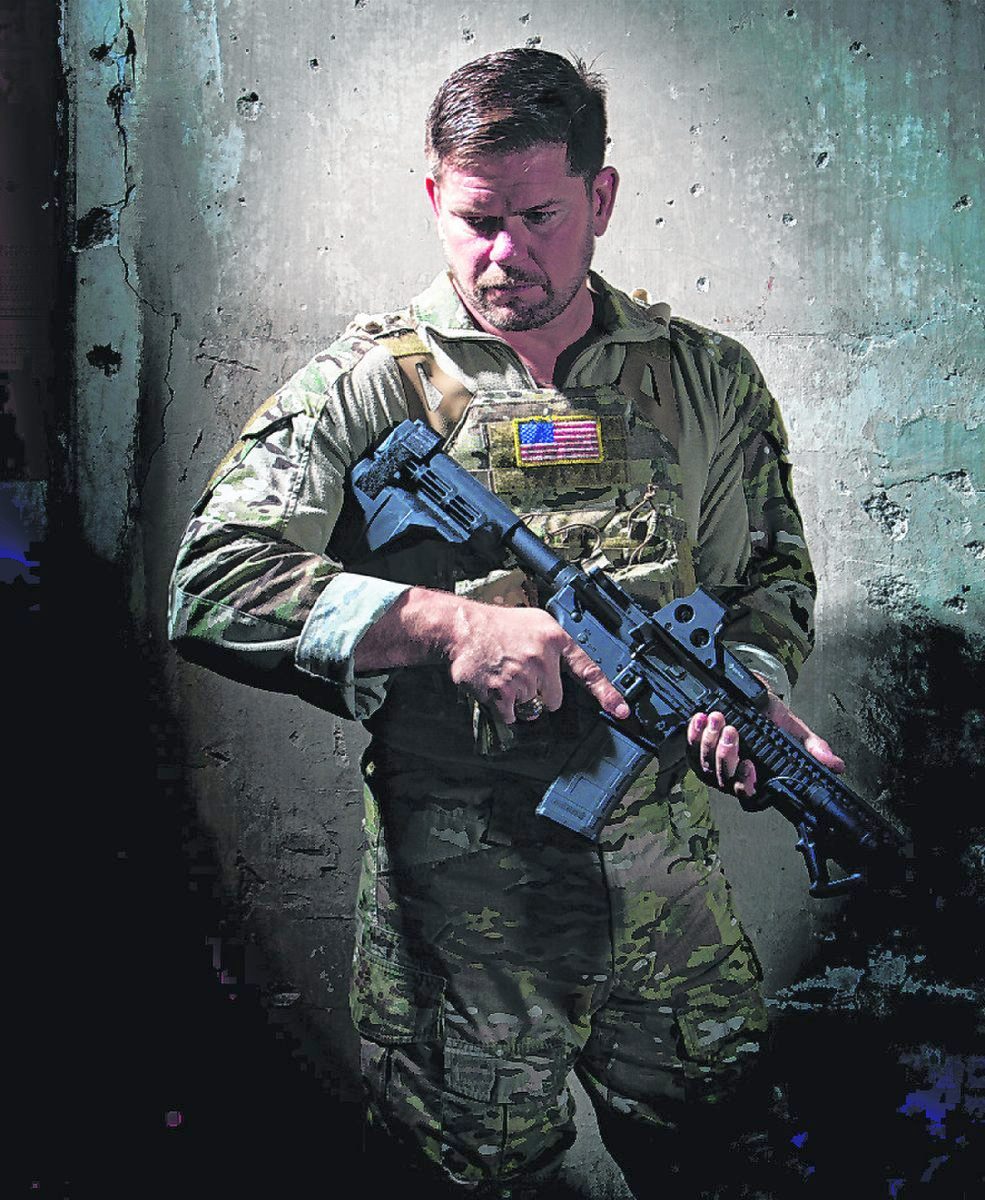
Tom Satterly grew up in Seymour as a “small, skinny kid who practiced violin.”
However, by the time he reached adulthood, he would become someone many consider a hero.
Satterly joined the U.S. Army and eventually was moved into the special operations unit known as Delta Force, where he would serve for 20 years.
During his time as a part of this unit, Satterly took part in the Battle of Mogadishu, the battle that the film “Black Hawk Down” is based on.
[sc:text-divider text-divider-title=”Story continues below gallery” ]
After completing his military service, Satterly learned there was another battle waiting for him at home — post-traumatic stress disorder.
PTSD began to not only affect him but also his wife and their relationship.
He said PTSD caused him to react to small inconveniences with the same level of aggression he would tackle life-threatening situations on the battlefield.
“I would walk into the house and the dishes are dirty and the kids are running around, the dogs are everywhere and there’s mud on the floor, I’ll freak out because that’s me immediately wanting to get ahold of it, so I had to retrain myself for how to handle those situations with the tools required for the amount of stress it really is versus going back to what I’ve always known,” Satterly said.
He said it was experiences like those that inspired him to help others in similar situations.
Satterly with the help of his wife, Jen, would go on to create the All Secure Foundation and write a book, “All Secure.”
His wife not only played a large part in the creation of the foundation, but she is “the hero of the story,” he said.
“As soon as we started asking for money, we were able to start helping veterans immediately,” Tom said. “I’d say she took the lead on all of that. I helped her, but I give her full credit for starting up the foundation while I was working and getting it to the place where I could do it full time. Both of us are able to dedicate our full time to the foundation now.”
Satterly said his goal for the foundation is to bring couples together that suffer from PTSD and bring the family unit together as one.
Teaching vulnerability is something Satterly says is very important. He said this can be very difficult to do with veterans, as many view themselves as too strong to seek help.
“Before bravery comes vulnerability. It has to,” he said.
The All Secure Foundation holds retreat workshops for former soldiers and their spouses. These workshops are designed to give veterans the necessary tools to begin the process of coping with PTSD. The goal is to educate them while at the same time creating a fun learning environment.
“You’re sitting in a classroom for a little bit and we’re giving you those tools, and then we’re taking you out and letting you practice and do an event that’s fun out in nature,” he said. “It’s a togetherness thing. They have to work together and use those tools that we just taught them while they’re driving golf carts through the woods, through caves and under waterfalls and it’s beautiful, but by the way, you have to talk to each other using the tools we give you.”
Satterly said he wanted to take this approach because he felt it was more beneficial for the future of these veterans than what other groups may do.
“A lot of people help veterans,” he said. “Well, they don’t help them, but they send them gifts, send them to Disney, send them on hunting trips and thank the veteran, which is all great, but we decided to work on the family unit to give them educational tools that they can use throughout the rest of their lives to help them in their relationship and to help them get through the depression of PTSD.”
The foundation will be holding eight more of these retreats throughout the year while also branching out with programs designed to benefit active duty soldiers.
Hosting these events has been “very cathartic” for Satterly, even providing him with a newly found purpose in life.
“This is another mission I’m on, so it gives me that feeling of belonging to something greater than myself, which is what most of those veterans need,” he said.
Satterly said the foundation chooses words carefully because of the stigma surrounding mental health issues.
“That’s why we sugarcoat what we do,” he said. “We don’t call it mental health treatment because as soon as you say mental health, people think mental illness, and it takes a whole other path, so we call it retraining, we call it occupational stress therapy, we call it a couples retreat workshop.”
Satterly said that’s key to encouraging some to enroll. While they may be embarrassed by the idea of seeking traditional mental health treatment, a couples retreat workshop may not sound as intimidating.
He closed by echoing his sentiment from earlier regarding bravery.
“It is not a sign of weakness,” he said. “It’s a sign of strength to reach out and ask for help.”
